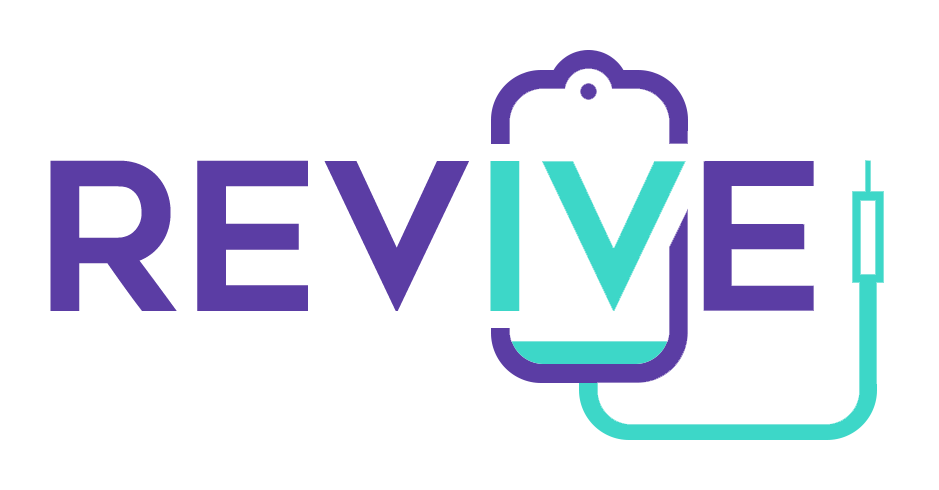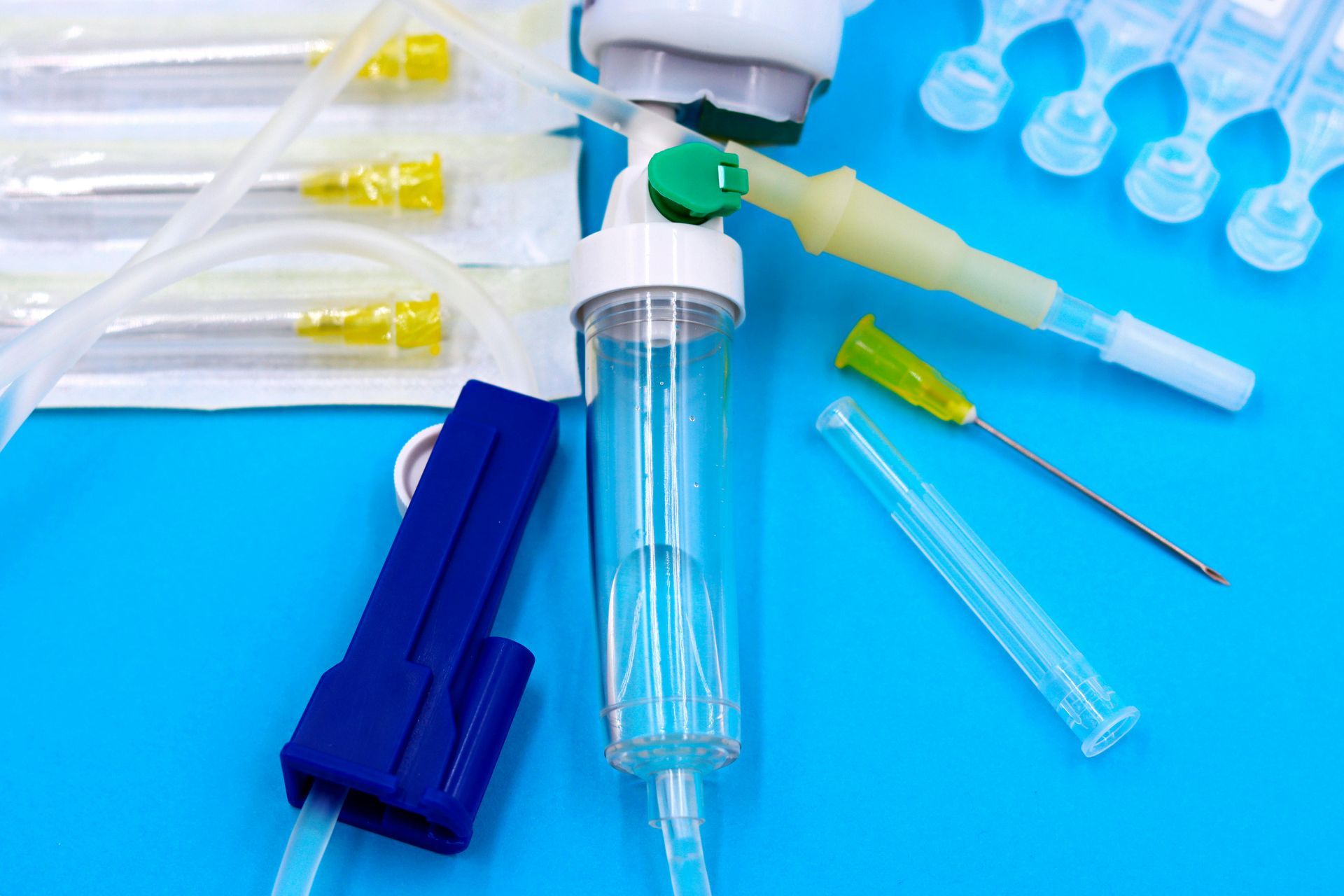Understanding the Benefits of Dehydration IV Therapy
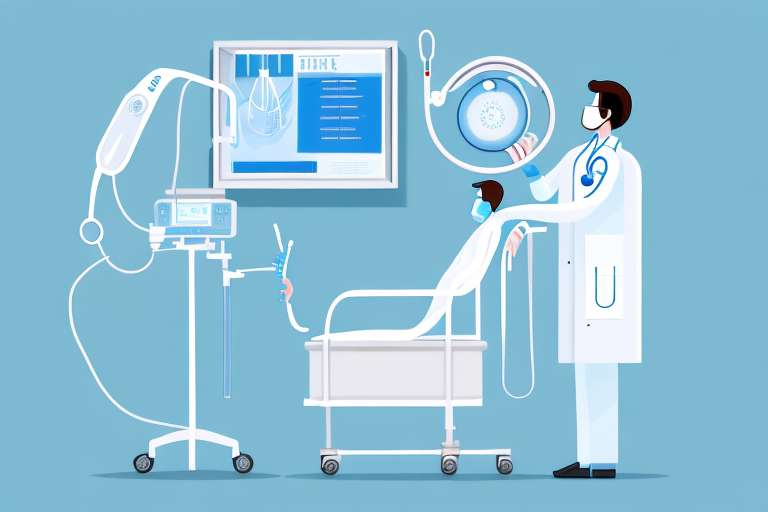
Dehydration is a common condition that affects many people, from athletes to those suffering from illnesses. It occurs when the body loses more fluids than it takes in, leaving the body depleted and fatigued. In the past, the only way to treat dehydration was through drinking fluids or receiving IVs in the hospital. But today, there is a new method of treating dehydration - Dehydration IV Therapy. In this article, we will discuss what Dehydration IV Therapy is, how it works, its benefits, side effects, and how it compares to other rehydration methods.
What Is Dehydration IV Therapy?
Dehydration IV Therapy is a medical treatment that involves the infusion of fluids, electrolytes, and vitamins directly into the bloodstream. The fluids are infused through a needle or catheter that is placed into the vein, bypassing the digestive system. The goal of IV therapy is to quickly rehydrate the body and restore its electrolyte balance, which is necessary for the proper functioning of cells, tissues, and organs.
The Science Behind IV Therapy
When we drink fluids, our digestive system has to break down and absorb them before they can enter the bloodstream. This process can take time, especially when we are dehydrated. IV Therapy bypasses this process by delivering fluids directly to the bloodstream, allowing our body to absorb them faster and more efficiently.
IV Therapy is also able to provide a higher concentration of fluids and electrolytes than oral rehydration methods. This is especially important for individuals who are severely dehydrated and need immediate medical attention.
Common Reasons for Dehydration
Dehydration can occur due to a variety of reasons, including excessive sweating, vomiting, diarrhea, fever, and even stress. Athletes and people who work in hot environments are also more likely to become dehydrated.
It is important to note that dehydration can have serious consequences if left untreated. Severe dehydration can lead to organ failure and even death. Therefore, it is important to seek medical attention if you suspect that you are dehydrated.
In addition to IV Therapy, there are other ways to prevent dehydration, such as drinking plenty of water, eating foods with high water content, and avoiding excessive alcohol and caffeine consumption.
Overall, Dehydration IV Therapy is a safe and effective way to quickly rehydrate the body and restore its electrolyte balance. If you are experiencing symptoms of dehydration, it is important to seek medical attention immediately.
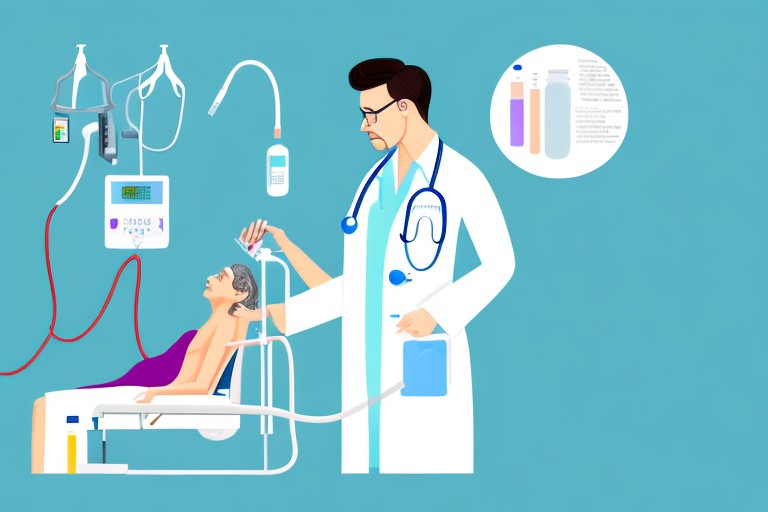
The Benefits of Dehydration IV Therapy
Dehydration is a common issue that affects many people, especially during hot summer months or after a strenuous workout. It can lead to a range of symptoms, including dizziness, fatigue, and weakness. Dehydration IV therapy is a modern solution that can help rehydrate the body quickly and efficiently. Here are some additional benefits:
Rapid Rehydration
Traditional rehydration methods like drinking water can take a long time to replenish lost fluids, especially for those who are severely dehydrated. IV therapy can rehydrate the body in a matter of minutes, providing almost instant relief from dehydration symptoms. This can be especially beneficial for individuals who are suffering from severe dehydration due to illness or excessive sweating.
Boosting Energy Levels
Dehydration can cause fatigue, dizziness, and weakness.
IV therapy can help increase energy levels by replenishing lost fluids and electrolytes. This can be particularly beneficial for individuals who lead an active lifestyle or have a busy work schedule that requires a lot of physical activity.
Strengthening the Immune System
IV therapy can boost the immune system by providing the body with essential vitamins like Vitamin C that are necessary for immune system function. This can be especially beneficial for individuals who are prone to getting sick or who have a weakened immune system due to a medical condition.
Enhancing Athletic Performance
Athletes often suffer from dehydration due to excessive sweating during competitions and training. IV therapy can replace fluids and electrolytes lost during exercise, enhancing
athletic performance and reducing the risk of injury. This can be especially beneficial for individuals who participate in high-intensity sports or endurance events.
Improving Skin Health
Dehydration can cause dry, flaky skin and exacerbate skin conditions like eczema and psoriasis. IV therapy can rehydrate the body and improve skin health. This can be especially beneficial for individuals who suffer from skin conditions or who want to improve the appearance and health of their skin.
Overall, dehydration IV therapy is a safe and effective way to rehydrate the body and
improve overall health and wellness. If you are suffering from dehydration or are interested in the benefits of IV therapy, talk to your healthcare provider to see if it is right for you.
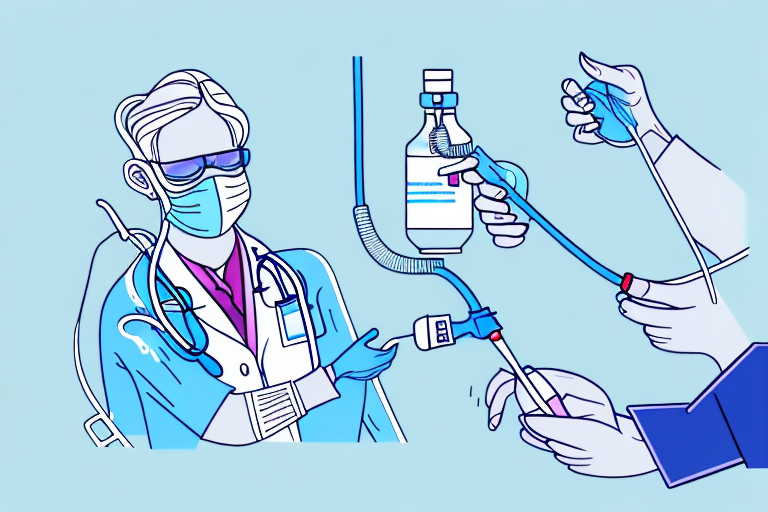
How Dehydration IV Therapy Works
Dehydration can be a serious condition that can lead to a range of health problems. It occurs when the body loses more fluids than it takes in, leaving the body without enough water to function properly. Dehydration can be caused by a range of factors, including illness, exercise, and hot weather.
IV therapy is a common treatment for dehydration that involves the infusion of fluids directly into the bloodstream. This method of treatment is effective because it allows for rapid rehydration of the body, which can help to alleviate symptoms and prevent complications.
The IV therapy process starts with a consultation with a doctor or nurse who will assess your health status and determine if IV therapy is suitable for you. During the consultation, the healthcare provider will ask about your symptoms and medical history to determine the best course of treatment.
If IV therapy is deemed appropriate, a needle or catheter is inserted into the vein, and fluids are infused into the bloodstream. The fluids used in IV therapy can vary, but they typically include a combination of water, electrolytes, and other nutrients that are needed to replenish the body's fluids.
Types of IV Fluids and Additives
There are various types of IV fluids available, including saline, lactated ringers, and dextrose. Saline is a solution of salt and water that is commonly used to treat dehydration. Lactated ringers is a solution that contains a combination of electrolytes and other nutrients that are needed to replenish the body's fluids. Dextrose is a solution that contains a form of sugar that can be used to provide the body with energy.
Additives, such as electrolytes and vitamins, can also be added to the IV fluid to replenish the body's nutrients. Electrolytes are minerals that are essential for the proper functioning of the body, including sodium, potassium, and magnesium. Vitamins, such as vitamin B12 and vitamin C, can also be added to the IV fluid to help boost the immune system and promote overall health.
Duration and Frequency of Treatments
The duration of IV therapy can vary depending on the severity of dehydration and the type of IV fluid used. However, most treatments take between 30-60 minutes. The frequency of treatments also depends on the individual's health status and the severity of symptoms. Some people may require daily IV therapy, while others may only need treatment once or twice a week.
Overall,
IV therapy is an effective treatment for dehydration that can help to alleviate symptoms and prevent complications. If you are experiencing symptoms of dehydration, such as thirst, dry mouth, or fatigue, it is important to seek medical attention to determine the best course of treatment.
Safety and Side Effects of Dehydration IV Therapy
Dehydration can be a serious medical condition that requires prompt treatment. In some cases, drinking water and other fluids may not be enough to rehydrate the body. In such cases, IV therapy can be used to deliver fluids, electrolytes, and other nutrients directly into the bloodstream.
Like all medical treatments, IV therapy has potential risks and side effects, including:
Potential Risks and Complications
The risk of infection is relatively low because the needle is inserted once and removed after the treatment. However, infections can still occur. It is important to ensure that the IV therapy is administered in a sterile environment and that the healthcare professional administering the treatment follows proper hygiene protocols.
In rare cases, the needle can puncture the vein, causing bleeding or bruises. This is more likely to occur if the patient has small or fragile veins. If the patient experiences pain or discomfort during the treatment, they should inform the healthcare professional immediately.
In extreme cases, IV therapy can cause fluid overload, which can be life-threatening. This is more likely to occur if the patient has a pre-existing medical condition that affects their fluid balance or if they receive too much fluid too quickly. Healthcare professionals should monitor the patient's vital signs and adjust the fluid infusion rate accordingly.
Who Should Avoid IV Therapy
Pregnant women, people with heart or kidney problems, and those who are allergic to the components of IV fluids should avoid IV therapy. People who suffer from dehydration due to chronic conditions like diabetes should also consult with a doctor before receiving IV therapy.
It is important to note that IV therapy is not a substitute for drinking water and other fluids. It should only be used when other methods of rehydration have failed or are not feasible. Patients should also be aware of the potential risks and side effects of IV therapy and discuss them with their healthcare provider before undergoing the treatment.
Overall, IV therapy can be a safe and effective way to rehydrate the body and deliver essential nutrients. However, it is important to ensure that it is administered by a qualified healthcare professional in a safe and sterile environment.
Comparing Dehydration IV Therapy To Other Rehydration Methods
Dehydration is a common problem that can occur due to a variety of reasons such as excessive sweating, diarrhea, vomiting, and fever. It is important to rehydrate the body to avoid serious health complications. There are several traditional and non-traditional ways to rehydrate the body, including:
Oral Rehydration Solutions
Oral rehydration solutions like Pedialyte are a less invasive way to rehydrate the body and can be purchased over-the-counter. They contain a balanced amount of water, sugar, and electrolytes, which makes them effective for mild to moderate dehydration. However, they are not as effective as IV therapy for severe cases of dehydration.
It is important to note that oral rehydration solutions are not suitable for everyone. People with certain medical conditions such as kidney disease, heart disease, and diabetes should consult their doctor before using them. In addition, oral rehydration solutions may not be well-tolerated by people with nausea and vomiting.
Sports Drinks and Electrolyte Supplements
Sports drinks and electrolyte supplements are a popular way to replace lost fluids and electrolytes. They are widely available and come in a variety of flavors. However, they can be high in sugar and are not as effective as IV therapy for severe dehydration.
It is important to choose sports drinks and electrolyte supplements carefully. Some products contain high amounts of sugar and artificial ingredients that can do more harm than good. In addition, these products may not be suitable for people with certain medical conditions such as diabetes and high blood pressure.
Natural Hydration Methods
Natural hydration methods like drinking coconut water, bone broth, and herbal teas can also help to rehydrate the body. They are a great way to supplement IV therapy and can be incorporated into a daily hydration routine.
Coconut water is a natural source of electrolytes and can help to replenish lost fluids. Bone broth is rich in nutrients and can help to boost the immune system. Herbal teas like chamomile and peppermint can soothe the digestive system and reduce inflammation.
It is important to note that natural hydration methods should not be used as a substitute for IV therapy in severe cases of dehydration. These methods may not be effective enough to replace the fluids and electrolytes lost during severe dehydration.
In conclusion, there are several ways to rehydrate the body, and the choice of method depends on the severity of dehydration and individual preferences. While oral rehydration solutions, sports drinks, and natural hydration methods can be effective for mild to moderate dehydration, IV therapy is the most effective method for severe cases of dehydration. IV therapy delivers fluids and electrolytes directly into the bloodstream, which makes it a fast and effective way to rehydrate the body.
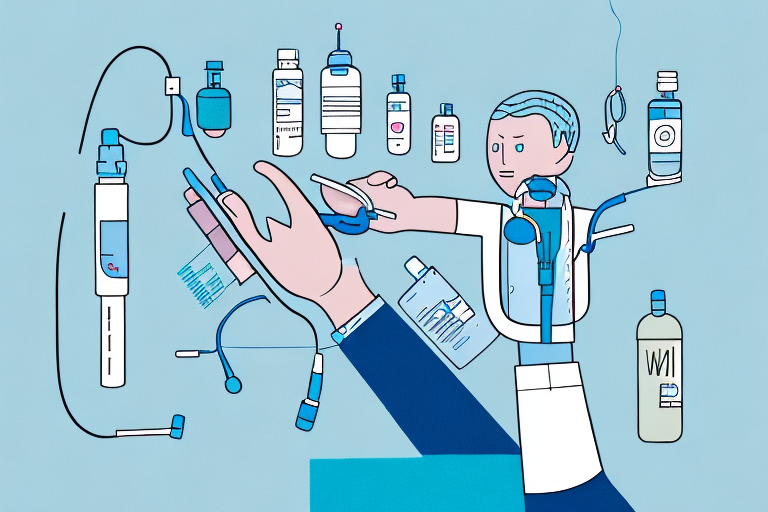
Finding a Reputable IV Therapy Provider
If you are interested in IV therapy, there are a few things you should consider before choosing a provider. IV therapy, also known as infusion therapy, involves the administration of fluids, vitamins, and other nutrients directly into the bloodstream through a vein. It can be a great way to boost your immune system, improve your overall health, and even help with certain medical conditions.
However, it is important to seek out a qualified medical professional with experience in infusion therapy. This will ensure that you receive the proper treatment and care that you need. Here are some tips for finding a
reputable IV therapy provider:
Look for a Provider Who Offers Customized Treatment Plans
Every person's body is different, which means that everyone's IV therapy needs will be different as well. A good IV therapy provider will take the time to assess your individual needs and create a customized treatment plan that is tailored to your specific health goals. This may involve a combination of different fluids, vitamins, and other nutrients that are designed to address your unique needs.
Make Sure the Provider Follows Proper Hygiene and Safety Standards
IV therapy involves the use of needles and other medical equipment, which means that proper hygiene and safety standards are essential. Before choosing a provider, make sure that they follow all necessary protocols to ensure that their equipment is clean and sterile. This will help to reduce the risk of infection and other complications.
Check for Necessary Credentials and Licensing
IV therapy is a medical procedure, which means that it should only be performed by qualified medical professionals. Make sure that your provider has the necessary credentials and licensing to perform IV therapy. This may include a nursing license, a medical degree, or other relevant certifications.
By following these tips, you can find a reputable IV therapy provider who can help you achieve your health goals. Whether you are looking to boost your immune system, improve your energy levels, or address a specific medical condition, IV therapy can be a great option for improving your overall health and well-being.
Conclusion: Is Dehydration IV Therapy Right for You?
Dehydration IV Therapy is a safe and effective way to quickly rehydrate the body and restore electrolyte balance. While it is not suitable for everyone, it is an excellent option for those experiencing severe dehydration or looking for a faster and more efficient way to replenish lost fluids. Talk to your doctor or a qualified IV therapy provider to determine if this treatment is right for you.
